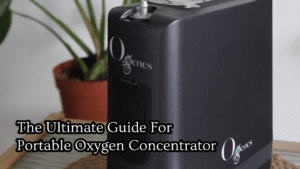This paper discusses the contradictory data in the literature regarding the impact of reactive oxygen intermediates (ROIs), which are responsible for causing cellular oxidative stress (OS), on viral replication. However, the paper highlights that ROIs have consistently demonstrated virucidal effects against enveloped viruses, including the human immunodeficiency virus (HIV). Hyperbaric oxygen therapy (HBOT) is shown to increase the production of ROIs in the body, leaving no safe haven for the virus to hide outside its genome. This technique has been tried on AIDS patients with promising results. Historically, the challenge in demonstrating HBOT’s antiviral effects has been due to the study of non-enveloped viruses or a failure to initiate ROI production. ROIs specifically target areas of unsaturation in cell membranes and viral envelopes, leading to the peroxidation of the viral envelope, breach, and subsequent viral disintegration.
This paper demonstrates that there are many examples in the literature of contradictory data concerning reactive oxygen intermediates (ROIs), responsible for producing cellular oxidative stress (OS), and their enhancement or diminution of viral replication. Nevertheless, ROIs repeatedly have been shown to be virucidal against enveloped-viruses, like the human immunodeficiency virus (HIV). Hyperbaric oxygen therapy (HBOT) increases the production of ROIs throughout the body, leaving no safe harbor for the virus to hide outside the genome. This technique already has been tried on acquired immune deficiency syndrome (AIDS) patients, with exciting results.
Historically, the biggest setback to demonstrating HBO’s antiviral effects has been the investigator’s folly of studying non-enveloped viruses or failing to initiate ROI production. ROIs specifically attack areas of unsaturation occurring in the polyunsaturated fatty acids of cell membranes and viral envelopes. Moreover, it consistently has been shown that a peroxidized viral envelope breaches, and a breached viral envelope causes viral disintegration.
FAQs
Q1: What are reactive oxygen species (ROS) and their role in the context of HIV and enveloped viruses?
A1: Reactive oxygen species (ROS) are chemically reactive molecules containing oxygen, such as superoxide, hydrogen peroxide, and hydroxyl radicals. In the context of HIV and enveloped viruses, ROS have a dual role, with some evidence showing they can enhance viral replication while other research demonstrates their virucidal effects.
Q2: What are enveloped viruses, and why is their vulnerability to ROS significant?
A2: Enveloped viruses, like HIV, are surrounded by a lipid membrane. This membrane is susceptible to attack by ROS, which can lead to viral envelope peroxidation, breach, and viral disintegration.
Q3: How does hyperbaric oxygen therapy (HBOT) impact ROS production and viral replication?
A3: HBOT increases the production of ROS throughout the body. This increased ROS production leaves no safe harbor for enveloped viruses, making it difficult for the virus to evade host defenses. HBOT has been explored as a potential treatment for HIV due to its ability to boost ROS levels.
Q4: Has HBOT been tested on HIV or AIDS patients, and what were the results?
A4: Yes, HBOT has been tried on AIDS patients, and it has shown exciting results. By increasing ROS production and targeting viral envelopes, HBOT has the potential to be an effective antiviral treatment.
Q5: What are the implications of this research for HIV and antiviral treatments?
A5: This research suggests that HBOT, by increasing ROS levels and targeting the viral envelope, may have promising antiviral effects, particularly for enveloped viruses like HIV. It opens avenues for further investigation into the use of HBOT in HIV/AIDS treatment.
Conclusion:
The study discussed in the keyword sheds light on the potential of hyperbaric oxygen therapy (HBOT) in combatting HIV and other enveloped viruses. While the role of reactive oxygen species (ROS) in viral infections has been debated, evidence suggests that ROS are virucidal against enveloped viruses. HBOT, which increases ROS production in the body, may be a viable treatment option for HIV, given its ability to target and disrupt the viral envelope. Research has shown promising results in AIDS patients, and this avenue merits further exploration in the search for effective antiviral treatments.






